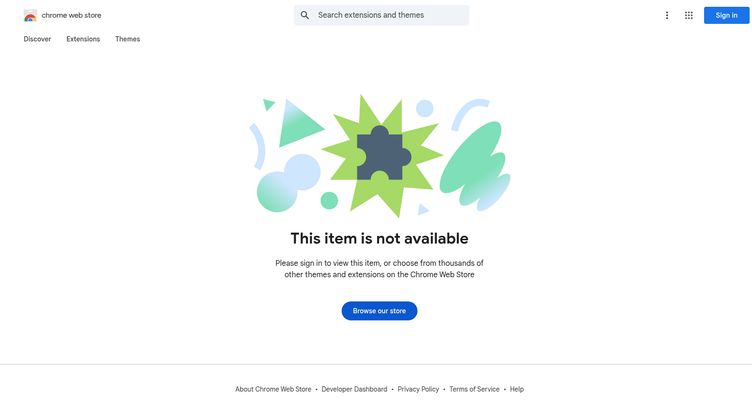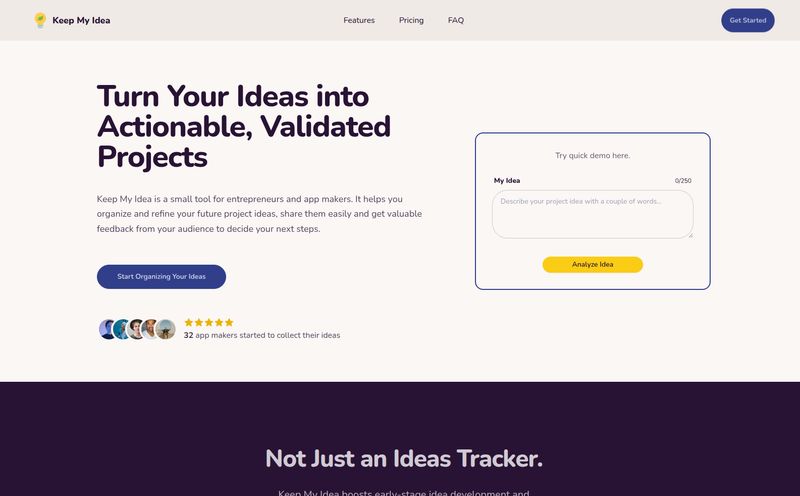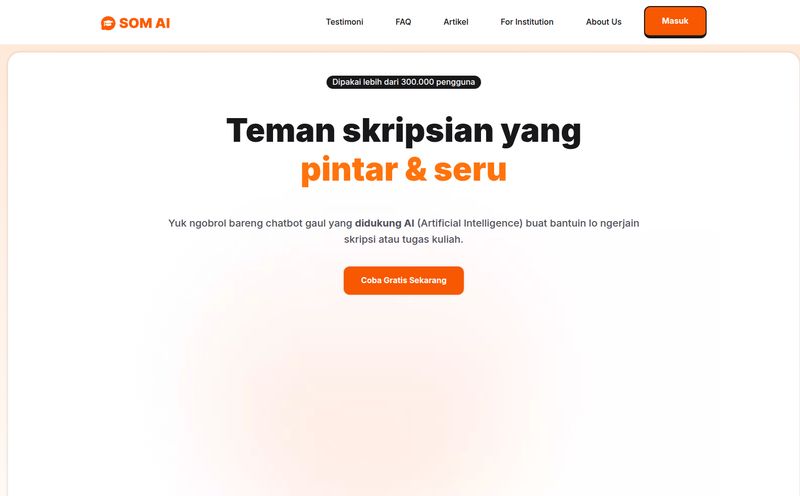I’ve been in the SEO and digital marketing game for years now, and if there’s one thing I’ve learned, it’s that the way we work is constantly in flux. We went from cubicles to open-plan offices to fully remote setups seemingly overnight. Now, there's a new shift rumbling under the surface, powered by that buzzword we all love to debate: Web3.
Every so often, a tool pops up that makes me lean in a little closer to my screen. Joba is one of those tools. The pitch is simple but audacious: an “identity network for the future of work.” It’s not just another job board. It’s a platform aiming to build your entire professional life—your resume, your reputation, your payment history—directly onto the blockchain.
Sounds like something out of a sci-fi novel, right? But for anyone who's ever had to chase an invoice across time zones or tried to prove their experience to a skeptical client, the idea is... well, it's pretty darn appealing.
What's the Big Idea Behind Joba, Anyway?
Let’s be real for a second. The current system for freelancers and remote workers is a bit of a mess. You’ve got a resume in a Google Doc, a portfolio on one site, testimonials on LinkedIn, and a payment history scattered across PayPal, Wise, and your bank account. It’s fragmented. Joba’s big idea is to unify all of that into a single, verifiable, on-chain identity.
Think of it like a digital passport for your career. Every completed project, every successful contract, every skill you acquire could be a stamp in this passport—a verifiable credential that you, and only you, own. This isn't just about making your resume look fancy; it’s about creating a foundation of trust. No more fudged experience or inflated skill lists. The blockchain doesn't lie.
This is where Joba wants to plant its flag, creating an ecosystem where your reputation is your most valuable asset, and it follows you everywhere, borderlessly.
So, How Does It Actually Work? The Techy Stuff
Okay, so the concept is cool. But how does it translate into features you can actually use? From what I've gathered, Joba is built on a few core pillars that directly address the pain points of the modern gig economy.
A Truly Decentralized Job Market
We've all paid the piper. Platforms like Upwork and Fiverr are great for finding work, but they take a significant cut. A decentralized marketplace, in theory, removes the powerful middleman. It connects talent directly with employers, with the rules of engagement encoded in smart contracts, not in some corporation's terms of service that can change on a whim. Lower fees and more power in the hands of the creator? Sign me up.
Trustless Hiring and On-Chain Contracts
This is the part that gets me really excited. "Trustless" is a term that gets thrown around a lot in the crypto space, but here it has a very practical meaning. By using on-chain contracts and maybe even things like Soul-Bound Tokens (SBTs), the terms of a job are locked in from the start. Milestones, deliverables, and payment are all agreed upon and executed automatically by the code. I've gotta say, the idea of never having to send a “just checking in on that invoice” email again is a beautiful dream. It turns the entire hiring process from a handshake agreement into a mathematically secure one.
Getting Paid Without the Headaches
International payments are the bane of my existence. SWIFT fees, currency conversion rates, random delays... it's a nightmare. Joba proposes to sidestep all of this with crypto payments. Get a project done, and the payment is in your wallet, sometimes in minutes, no matter where you or your client are in the world. Of course, this comes with its own set of challenges—volatility and the general learning curve—but the potential for friction-less global commerce is massive.
The Elephant in the Room: Where Did Joba Go?
So, I'm all hyped up, ready to build my on-chain resume and take over the world. I head over to the Chrome Web Store to check it out, and I'm met with this:

Visit Joba
This item is not available.
Well, that's a bit of a buzzkill. It’s the digital equivalent of showing up to a grand opening and finding the doors locked. So what gives? In my experience, this can mean a few things. The platform could be in a closed beta, slowly onboarding users before a public launch. They might have decided to pivot from a browser extension to a full web app. Or, and this is common with ambitious tech projects, they're simply in a heavy development phase, and what was there before is being rebuilt. It’s a stark reminder that we're talking about the bleeding edge here, and sometimes the edge is a little... rough.
Does it mean Joba is dead in the water? I dont think so. It just means it's a project to watch, not one you can necessarily use today. It’s a vision of the future that's still under construction.
The Good, The Bad, and The Blockchain
Even as a concept, Joba presents a classic set of pros and cons. The upside is huge: empowering workers, creating a trust-based system, and simplifying global commerce. It’s a genuine attempt to fix a broken model.
But let's be realistic about the hurdles. The biggest one is adoption. The entire system relies on people being comfortable with crypto wallets and blockchain technology. Telling my freelance clients they need to pay me in ETH via a smart contract is, for now, a non-starter for most of them. There's a steep educational curve, and the platform's success hinges on its ability to abstract away the complexity, much like how we use the internet today without understanding TCP/IP.
It's still in its early stages, which means bugs, changes, and a lack of the network effect that makes a marketplace valuable. It’s a chicken-and-egg problem: you need clients to attract talent, and you need talent to attract clients.
What About the Cost? The Joba Pricing Mystery
As you might expect from a platform that's not even publicly listed right now, there's zero information on pricing. Will it be a subscription? A small percentage of contract value (hopefully smaller than the incumbents)? Transaction fees (gas fees)? Your guess is as good as mine. My hope is that they lean into the decentralized ethos and keep costs minimal, but only time will tell.
Frequently Asked Questions
What is Joba?
Joba is a conceptual on-chain identity network designed for the future of work. It aims to help freelancers and remote workers build a verifiable resume and reputation on the block chain, using it to find work and get paid via cryptocurrency.
How does an on-chain resume work?
An on-chain resume links your professional accomplishments—like completed jobs, certifications, and skills—to your digital identity as cryptographic tokens. This makes your experience easily verifiable and prevents fraudulent claims, creating a permanent, trustworthy record of your career.
Is Joba safe to use?
Theoretically, its foundation on blockchain and smart contracts should make it very secure. "Trustless" systems are designed to operate without needing to trust a central party, which can reduce risks of non-payment or disputes. However, as it's an early-stage platform, its real-world security is yet to be proven.
Do I need to know about cryptocurrency to use Joba?
Almost certainly, yes. Given its core features are built around on-chain contracts and crypto payments, a basic understanding of digital wallets (like MetaMask) and cryptocurrency would likely be necessary. The main challenge for platforms like this is making that process user-friendly.
Why can't I find Joba on the Chrome Web Store?
The platform is likely in an early, pre-launch stage of development. The “item not available” message suggests it might be in a private beta, undergoing a major redesign, or has been temporarily pulled for updates.
A Glimpse of What's to Come?
So, where does that leave us with Joba? For me, it remains a fascinating concept. It represents a fundamental rethinking of professional identity and freelance work. While the execution is still a question mark and the practical hurdles are significant, the problems it's trying to solve are very, very real.
Whether Joba itself becomes the next big thing or simply inspires other platforms, the idea of an ownable, verifiable, and global professional identity is powerful. It’s a trend I’ll be watching closely. The future of work might not be here just yet, but projects like Joba are drawing the map.
Reference and Sources
- CoinDesk: What Are Soulbound Tokens (SBTs)? - For more on the tech behind verifiable credentials.
- Forbes: The Future Of Work Is Web3 And Decentralized - A broader look at the trend Joba fits into.



